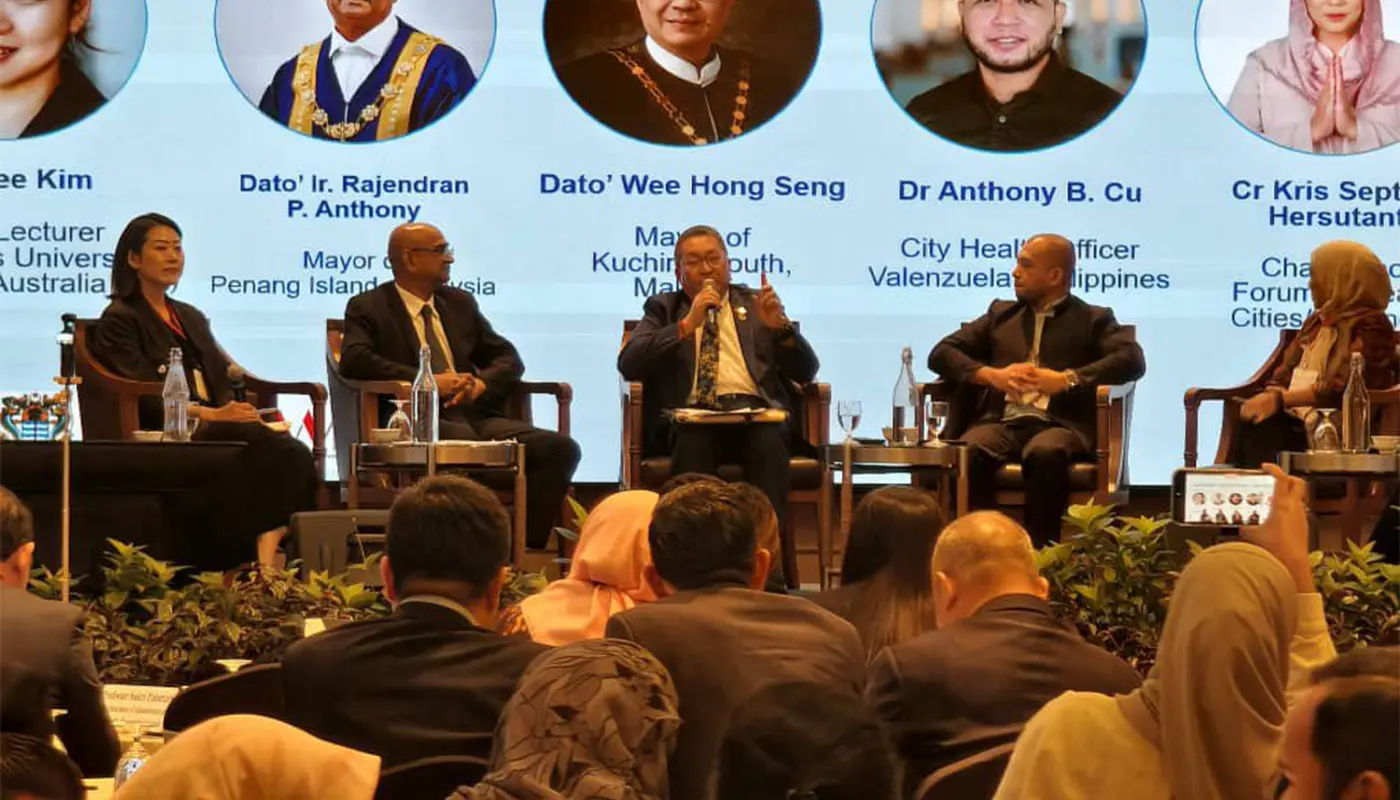PENANG – Kuching South City Council (MBKS) Mayor Dato Wee Hong Seng has highlighted the city’s preparations for an ageing population at the World Health Organization (WHO) Mayors’ Meeting on Healthy Cities.
The event, held in Penang, brought together leaders from across the region to discuss strategies for building healthier, more inclusive urban environments.
Speaking as a panellist in a session on future-ready cities, Dato Wee reaffirmed Kuching South’s long-standing commitment to the WHO Healthy Cities movement.
He noted that the council is intensifying age-friendly planning as Kuching approaches official ageing-city status by 2028.
He explained that a healthy city must be built not only on healthcare services but also on clean surroundings, safe public spaces and supportive community networks.
“A healthy city is not just about hospitals. It is about creating environments where people feel safe, supported and connected,” he said.
Dato Wee outlined several collaborations with the private sector that are expanding Kuching’s senior support ecosystem.
Among them is Borneo Medical Centre’s Hospital-Led Home Care service, which provides medical support directly to households.
He also pointed to Elica Equity’s Senior Retirement and Community Living development, which offers independent and assisted living, rehabilitation and dementia care facilities.
In addition, property developer Ibraco is preparing to launch an elderly-friendly flat project designed with improved access to medical services and transport links, further strengthening the city’s infrastructure for senior citizens.
Accessibility is also being enhanced through MBKS’s new Pay and Go Smart Parking System, which now includes an Elderly Easy Payment (EEP) option.
This feature allows seniors to register once and have parking fees deducted automatically, eliminating the need for manual payments or mobile app usage.
Dato Wee emphasised that these initiatives form part of a growing continuum of care for seniors in Kuching.
He said they demonstrate MBKS’s commitment to long-term, inclusive and age-friendly planning under the WHO Healthy Cities framework.
The WHO Mayors’ Meeting provided a platform for Kuching to showcase its proactive approach to ageing, while also learning from other cities facing similar demographic challenges.
With Sarawak’s population ageing rapidly, Kuching’s initiatives are seen as a model for balancing healthcare, infrastructure and community support to ensure the well-being of its elderly residents.




